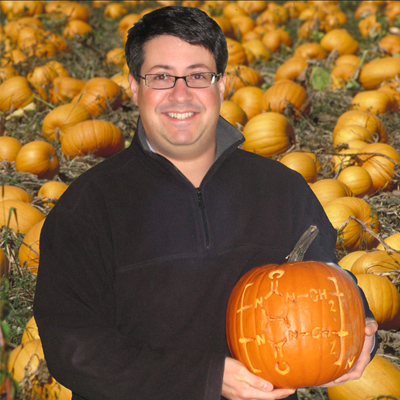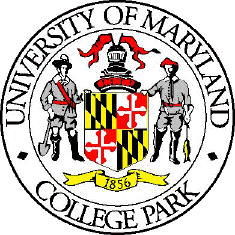Synthesizing molecular containers that can change and improve the properties of multiple biomedical drugs
In everyday life, containers serve many important purposes. For example, containers are used to preserve foods and beverages, to ship items to various locations around the globe, and to protect their contents from the outside elements. Molecules also need containers for many reasons; Dr. Lyle Isaacs of the University of Maryland, is working to synthesize some of the world’s newest molecular containers with the power to change the chemical properties of the compounds they encapsulate and increase their utility in multiple applications. Pharmaceutical research is often crippled by the discovery of crucial drugs that cannot be delivered due to their insolubility in water, but when placed in the right container, these molecules become soluble and can then be distributed to the necessary places within the body. Cyclodexrins are a common type of molecular container facilitating the production of $5 billion of these insoluble drugs per year. Dr. Isaacs and his team have found that cucurbit[n]uril containers (also called CB[n]) possess properties that would allow them to improve upon a number of applications that cyclodextrin, as well as other molecules, fail to fully service, such as the formulation of new, advanced drugs. Another application involves neuromuscular blocking agents (NMBAs), which are administered by anesthesiologists during surgery, but which pose multiple threats to patients after surgery. Muscle weakness and difficulty breathing are only two of the side effects that increase healthcare costs and patient mortality. The Isaacs group is developing CB[n]-type receptors as reversal agents to significantly reduce the undesirable consequences of residual effects of NMBAs. This work promises to impact the care of the 18.7 million patients who receive NMBAs each year in the United States.
Dr. Isaacs is a highly-cited researcher with an immense passion for pushing the frontier of chemistry as well as fostering the next generation of chemists to carry on their own searches for new exciting molecules. He takes his position as an educator to heart by supporting all of his students’ own personal interests and helping them meet their goals. For those with their heart set on leading their own research in the future, Dr. Isaacs guides them toward the high-impact publications and experience they need to be competitive in the field; for those interested in chemistry education, he teaches them to be good mentors early on by pairing older students up with younger ones. Dr. Isaacs’ is the Director of the University of Maryland's Chemistry Graduate Assistance in Areas of National Needs (GAANN) program sponsored by the US Department of Education.
Research in the Isaacs Lab targets an improved understanding of the basic science behind CB[n] molecular containers with the goal of using this knowledge to create new molecular containers for real-world biomedical applications:
- Turning Insoluble Developmental Drugs into Soluble Medicines: As medicinal research steers closer to inventing new drug compounds with the capacity to benefit human life, an estimated 40-70% of these critical new drugs are found to be so insoluble in water that they cannot be formulated on their own. By designing and synthesizing broadly-applicable CB[n]-type molecular containers as solubilizing excipients, the probability for new drugs to reach the market will be dramatically improved.
- Reversing Neuromuscular Blocks: CB[n]-type molecular containers have also exhibited the capacity to reverse the unwanted side effects of neuromuscular block induced by NMBAs that are commonly used during anesthesia / surgery. To better bind to and thereby sequester these NMBAs from the bloodstream, the binding affinity between Dr. Isaacs’ molecular containers and NMBAs as well as the containers’ selectivity must be studied in further detail. Compounds with appropriate levels of affinity and selectivity will then proceed to relevant in vitro and in vivo tests.
- Targeted Delivery of Anti-Cancer Agents: By designing new containers that both encapsulate anti-cancer agents and are actively targeted to cancer cells and tumors, Dr. Isaacs and his research group aim to improve the efficacy and reduce the side effects of anti-cancer agents. Using this technique, which has been proven to increase the in-vitro bioactivity of the anti-cancer agents oxaliplatin by 10-fold, Dr. Isaacs is aiming to expand the range of different anti-cancer drugs that will now have an effective route of targeted delivery.
- Building the Foundations of Molecular Container Chemistry: Advancing biomedical applications would not be possible without the basic theory laid out and fundamental mechanisms understood. As synthetic chemists, Dr. Isaacs and his group are continuously exploring deeper into the field of molecular container chemistry and paving the way for new molecules to be discovered and synthesized. A few of the studies they are conducting involve replacing certain compounds used commonly in many analytical tests of biochemistry - such as avidin-biotin - with their own CB[n] complexes, which are smaller, more robust, and stimuli responsive.
Bio
Dr. Lyle Isaacs was born in New York in 1969. He graduated from the Bronx High School of Science in 1987 and went on to receive his B.S. from the University of Chicago in 1991, and an M.S. from the University of California, Los Angeles in 1992. Afterwards, he attended the Swiss Federal Institute of Technology (ETH Zurich) where he received his Ph.D. while working under Professor Francois Diederich. That year he was awarded an NIH Postdoctoral Fellowship and joined the lab of Professor George M. Whitesides at Harvard University. His studies with Whitesides focused on self-assembly - in organic solution, in water, and at surfaces. In 1998 he joined the faculty at the University of Maryland in College Park, Maryland and was promoted to Associate Professor in 2004, and Professor in 2008.
Dr. Isaacs was a co-organizer of the 8th International Symposium on Macrocyclic and Supramolecular Chemistry (ISMSC, 2013) and the NSF sponsored workshop on Cucurbiturils which evolved into the International Conference on Cucurbiturils (ICCB). He is a member of the International advisory boards of ISMSC and ICCB, as well as a member of the Editorial Board of Supramolecular Chemistry, the Journal of Systems Chemistry, and the International Journal of Molecular Sciences. He has served as a guest editor of special issues of Advanced Drug Delivery Reviews and Accounts of Chemical Research.
As a young child, Dr. Isaacs loved to play with Legos. Using those plastic blocks as a start, he grew fond of pulling household items apart and figuring out how to fit the pieces back together, a passion for understanding that has led him to pulling molecules apart and learning how their pieces work with organic chemistry. Just as Legos are the building blocks of enthralling plastic castles and buildings, chemical compounds are the building blocks of life. Dr. Isaacs regards the molecules he designs and builds as an expression of his and his students’ intellectual creativity, much like an artist who sweeps their brush across a painting. Both bring substantial benefit to human life, and Dr. Isaacs is excited to pursue new biomedical applications with the molecules his group is working to synthesize.
Outside of the lab, Dr. Isaacs enjoys playing tennis and running after his two young children at the local playground. Another personal hobby he holds is digging into his family ancestry. He wishes he had more time to explore it with hands-on research in the far flung locations on his family tree.
For more information, please visit: https://sites.google.com/site/umdisaacslab/
In the News
Publications
Awards
2013 Elected Fellow of the American Association for the Advancement of Science (AAAS)
2011 Invention of the Year (University of Maryland, Life Sciences Category)
2009 Special Creativity Extension, National Science Foundation
2005 Visiting Professor, Central China Normal University, Wuhan, China
2003 Visiting Professor, Universität Duisburg-Essen, Essen, Germany
Patents
Preparation of acyclic cucurbit[n]uril-type molecular containers for use as drug delivery, PCT Int. Appl. 2012, WO2012051407 A1.
Lorem ipsum dolor sit amet, consectetur adipiscing elit. Nunc ac porta lacus. Phasellus venenatis, lorem eu interdum sollicitudin, magna purus vestibulum sapien, et ornare justo libero consectetur ipsum.


